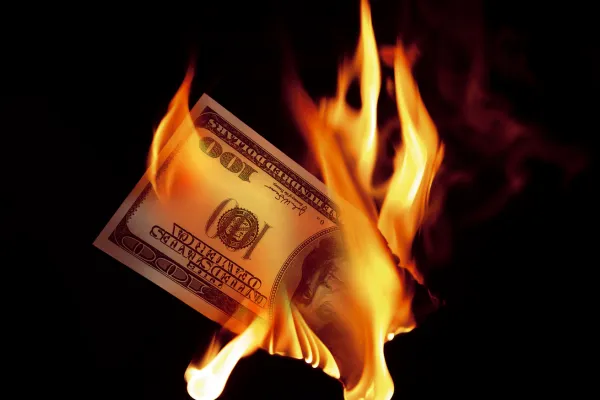
The Quiet End of the Petrodollar and Why It's Important
Over the weekend, on June 9th, 2024, a significant yet quiet event occurred—the petrodollar came to an end. I say quiet event, because the mainstream media isn't reporting this, for some reason...probably to keep up their "the economy is never better" gaslighting.
To understand the significance of this event, let's revisit the history that led to the creation of the petrodollar.
The Gold Standard and the Birth of the Petrodollar
In 1971, under President Richard Nixon, the USA ended the gold standard known as the Bretton Woods Agreement. This move, described by Nixon as "temporary" effectively decoupled the dollar from gold. Today, in 2024, the dollar still remains off the gold standard.
The quote “Nothing is so permanent as a temporary government program" by Milton Friedman comes to mind.

Milton Friedman
With the dollar losing its gold backing and thus losing power, the USA struck a deal with Saudi Arabia in 1974. The agreement was simple: the U.S. would provide military protection to Saudi Arabia in exchange for oil to be sold exclusively in U.S. dollars. This arrangement tied the dollar to global oil transactions, cementing its status as the dominant currency in international trade and giving birth to the petrodollar.
The petrodollar system ensured that countries worldwide needed dollars to buy oil, thereby creating a constant demand for the currency. This demand has been the foundation of the dollar as the global reserve currency for the past 50 years.
The Erosion of the Dollar’s Dominance
In recent years, several factors have contributed to the dollar’s decline in global standing. The U.S. has faced issues reminiscent of the fall of Rome—out-of-control spending, debt, and prolonged military engagements. These actions have undermined confidence in the dollar.
In addition, the creation of the BRICS alliance (Brazil, Russia, India, China, and South Africa) represents a challenge to the US dollar's dominance. These nations, along with others joining BRICS at a fast pace, have been using alternative currencies for trade.

The End of the Petrodollar
The recent decision by Saudi Arabia, a BRICS nation, not to renew the petrodollar agreement could weaken the dollar's dominance. Saudi Arabia is now free to trade oil in other currencies, with the Chinese Yuan emerging as a popular alternative.
Despite these challenges, the US dollar remains a dominant force in global finance. However, the end of the petrodollar agreement is a significant blow for a currency which has been losing favor in recent years.
As BRICS nations and others reduce their holdings of US dollars in favor of other currencies and gold, the long-term impact on the dollar remains uncertain.
